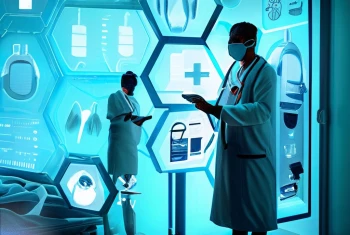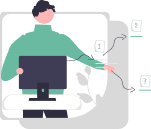Technology is profoundly transforming the landscape of healthcare services. From telehealth to Artificial Intelligence (AI), innovations are reshaping the ways in which care is delivered and received. This article discusses the significant influence of technology on healthcare services and how it's catalyzing a new era in medical care.
1. Telehealth: Telehealth, the delivery of health-related services and information via electronic and telecommunication technologies, has made healthcare more accessible. Patients can now consult with healthcare professionals from the comfort of their homes, making healthcare more convenient, especially for those in remote areas or with mobility issues.
2. Artificial Intelligence: AI is revolutionizing healthcare in numerous ways. AI-powered tools can analyze vast amounts of medical data to make diagnoses, suggest treatments, and predict disease patterns. AI is also enhancing imaging diagnostics, helping healthcare professionals to interpret MRI scans, X-rays, and other imaging data more accurately and efficiently.
3. Big Data: The use of big data in healthcare has the potential to improve patient outcomes and enhance operational efficiency. By analyzing large sets of patient data, healthcare providers can identify trends, make informed decisions, and provide personalized care. For instance, predictive analytics can help detect diseases at early stages, enabling early intervention and better patient outcomes.
4. Electronic Health Records (EHRs): EHRs have replaced paper-based records, allowing for more accurate and efficient documentation of patient information. EHRs improve coordination among healthcare providers, enhance patient care, and reduce the likelihood of medical errors.
5. Wearable Technology: Wearable devices like fitness trackers and smartwatches provide valuable health data in real-time, enabling individuals to monitor their health and lifestyle more effectively. These devices can also alert healthcare providers to potential health issues, enabling timely intervention.
6. Robotics: Robotics in healthcare ranges from robots assisting in surgery to those aiding in patient care and rehabilitation. They contribute to increased accuracy in medical procedures and improved patient experiences.
In conclusion, technology is radically transforming healthcare services, making them more efficient, personalized, and accessible. As these technologies continue to evolve, we can anticipate further advancements that will revolutionize the healthcare industry. However, it's crucial to address challenges related to privacy, data security, and the digital divide to ensure these technologies benefit all individuals.





